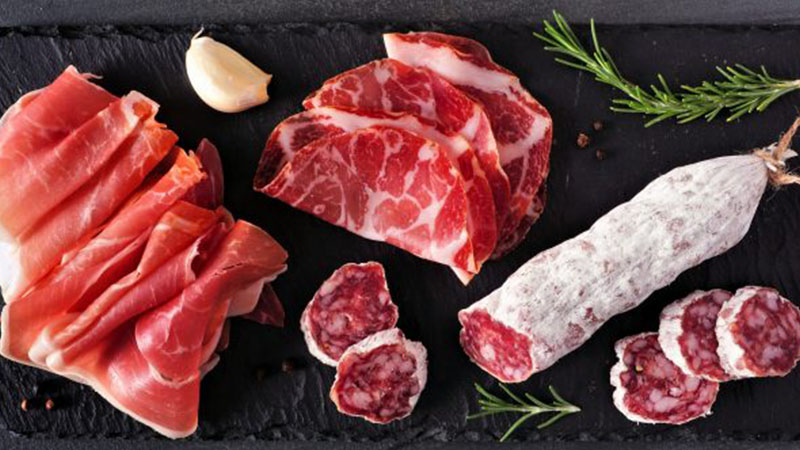Pros and Cons of the Keto Diet
How This Low-Carb Diet Impacts Your Health
Updated February 2025
Though it may seem newer to your newsfeed, the ketogenic diet has been around since the 1920s. The low-carbohydrate, high-fat diet gained a foothold when proven to reduce seizures in children with epilepsy. While still prescribed for that purpose today, the diet is now touted as a weight-loss tool.
Breaking Down the Keto Diet
The keto diet is all about cutting carbs and eating more fat, similar to the Atkins diet from the 1970s. Here’s what the daily breakdown of carbs, protein and fat looks like on keto:
- 5% of calories from carbohydrates, including low-carb, non-starchy vegetables and small amounts of leafy greens. The keto diet reduces your total carb intake to less than 50 grams a day. This is the equivalent of a cup of white rice. The keto diet excludes carb-rich foods like grains, beans, fruits and starchy vegetables.
- 20% of calories from protein, such as meat, eggs and cheese.
- 75% of calories from fat, such as olive oil, unprocessed nuts, butter and avocado.
Roshini G. Merneedi, RD, a dietitian at Northwestern Medicine, explains that your body's primary energy source is glucose, which comes from the breakdown of carbohydrates. The keto diet limits carbohydrates, forcing your body to burn fat for fuel instead.
Here’s how it works:
- Extra amounts of carbohydrates are initially stored as glycogen, a cluster of glucose.
- When these stores are full, they are converted into fat.
- When your glucose levels are low, your body uses fat instead of glucose for energy.
- When your body burns fat instead of glucose for energy, it enters a metabolic state called ketosis.
- In this state, your body breaks down fats into molecules called ketones. Ketones serve as an alternative fuel source.
Benefits of the Keto Diet
1. You can lose weight rapidly.
“There has been anecdotal evidence of people losing weight on the ketogenic diet. People also report feeling less hungry than on other types of restricted diets,” says Melinda R. Ring, MD, director of Northwestern Medicine Osher Center for Integrative Health. “However, while many people report initial rapid weight loss on the keto diet due to glycogen depletion and water loss, long-term fat loss depends on sustained caloric deficits and metabolic adaptation.”
Without careful planning, Dr. Ring says that some people experience plateaus or weight regain once they stop the keto diet.
2. You can eat high-fat foods you may enjoy.
On paper, burning fats by eating more of them is enticing, which is why the keto diet has become popular. The keto diet allows many people to eat the types of high-fat foods that they enjoy, such as red meats, fatty fish, nuts, cheese and butter, while still losing weight.
While the diet allows for high fat intake, experts recommend prioritizing healthy fats like monounsaturated and polyunsaturated fats found in olive oil, avocado and fatty fish to promote heart health.
3. There is evidence that the keto diet can help specific groups of people.
The keto diet helps reduce seizures in children with epilepsy. Endurance athletes and body builders also use it to scrap fat in short timeframes. The keto diet is being studied for reducing symptoms for patients with progressive neurological disorders like Parkinson’s disease. But scientific research has not confirmed benefits for these patients, Dr. Ring says, and more research is needed before it can be widely recommended. “Always consult a medical professional before using keto therapeutically,” she adds.
Risks of the Keto Diet
1. It’s difficult to maintain.
Because of the stringent food restrictions, many find the keto diet hard to stick to.
“The ketogenic diet can be effective for weight loss when used in a short time period followed by the adoption of healthier eating habits,” says Baljash Singh Cheema, MD, a cardiologist at Northwestern Medicine Bluhm Cardiovascular Institute. “However, we know in studies of these types of diets that once people stop following that diet, they regain at least half of the weight that they lost. Sustainable change over time is far more important.”
Ketosis is difficult to achieve because it’s like a light switch: either on or off. Individuals who consistently track food intake are more likely to remain in ketosis. But the only way to tell if your body is in ketosis is a blood test.
2. You have a greater risk of nutrient deficiency and calorie depletion.
“Because the keto diet is so restricted, you’re not receiving the nutrients — vitamins, minerals, fibers — that you get from fresh fruits, legumes, vegetables and whole grains,” says Dr. Ring. These deficiencies can lead to a host of health issues.
People report feeling foggy, irritable, nauseous and tired. These symptoms have been dubbed “the keto flu.” Constipation is also common on the keto diet because of the lack of fiber.
“In particular, low fiber intake can disrupt gut microbiota and lead to chronic constipation, while inadequate magnesium, vitamin C and potassium can contribute to muscle cramps, fatigue and weakened immune function,” explains Dr. Ring.
3. Bad fats can be bad for heart health.
The high-fat nature of the diet could also have negative impacts on heart health. The American Heart Association recommends limiting saturated fat intake to less than 6%.
“In practice, many people eat high amounts of saturated fats, which could increase your risk of heart disease,” says Dr. Cheema. “You may be eating a lot of fatty meat thinking it’s a good thing for you because it's high in fat. This can dramatically alter your lipid profile. We can see an increase in lipids, or fats, in the blood of patients on the keto diet within six to eight weeks.”
While high-fat diets can elevate LDL (“bad”) cholesterol, the type of saturated fat matters. Processed meats and highly refined fats pose greater risks to heart health compared to sources like full-fat dairy or coconut oil, though moderation is still key.
The bottom line is that having more fats in your diet can lead to higher cholesterol. “We know that higher cholesterol tends to increase your chances of heart attacks and strokes,” says Dr. Cheema.
4. The keto diet can be tough on your kidneys.
The keto diet may not be appropriate for everyone, specifically people with kidney disease. “Although more research is needed in that area, there is some suggestion that it can make kidney disease worse over time,” says Dr. Cheema.
Some people also experience dehydration on the keto diet because they’re eliminating glycogen, which holds water, from the bloodstream. This can lead to a loss of electrolytes, potentially stressing the kidneys and making underlying conditions worse.
5. When you track your food, it can lead to disordered eating.
When you micromanage your food intake by tracking how much you eat, it disconnects you from what your body is asking for. You start using outside numbers to determine what to eat instead of listening to your body. “Being intuitive and understanding what your body needs is essential for proper nourishment,” says Merneedi.
Monitoring food so closely can lead to psychological distress, such as shame and binge eating. Restriction can lead to bingeing, which often leads to guilt, which then leads back to restriction in a continuous cycle.
6. It can cause blood pressure and blood sugar to drop.
The keto diet can cause your blood pressure to drop in the short term due to a reduction in blood volume and changes in your fluid balance. Symptoms of low blood pressure include dizziness, lightheadedness or fainting, especially when standing up quickly.
Following a keto diet can also cause your blood sugar to drop, which can be dangerous for people living with diabetes. Common symptoms of low blood sugar include weakness or shaking, sweating, a fast heartbeat and dizziness.
Other Approaches for Weight Loss
For long-term weight loss, Dr. Ring, Dr. Cheema and Merneedi all recommend a balanced approach, like the Mediterranean diet, which focuses on plant-based eating.
Intermittent fasting is an approach that allows you to receive the benefits of ketosis while still eating a varied and balanced diet, says Dr. Ring. By cycling between periods of eating and fasting, your body enters “mild ketosis” during the fasting phase. “Unlike the keto diet, which requires strict food restrictions, intermittent fasting lets you enjoy a variety of nutrient-dense foods, such as fruits, vegetables, whole grains and legumes, during eating windows,” Dr. Ring explains. “This flexibility makes it easier to maintain in the long term while supporting metabolic health, weight management and cellular repair.”
Dr. Cheema advocates making small changes based on your health goals. “People tend to burn out on those big goals and challenges, and then they go back into their own habits,” he explains. “Just because you were super fit between the ages of 36 and 38 may not extend your healthy life. But if you make small changes consistently every day from ages 36 to 66, that probably will have a big impact. As a cardiologist, I care more about that sustainable change over time.”
Final Takeaway
No one diet fits all, and what works for one person may not work for another. Consult your physician or a dietitian to ensure that your dietary changes support your overall health, align with personal goals and minimize risks.







